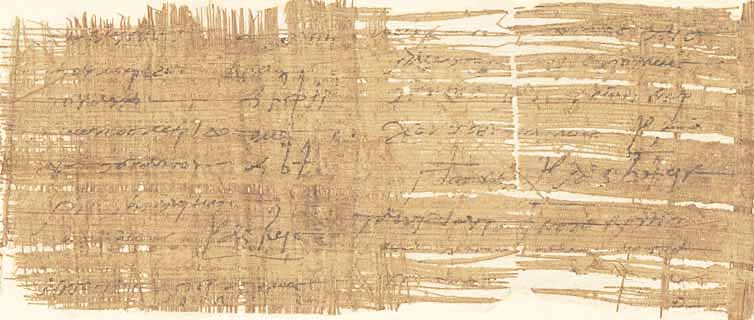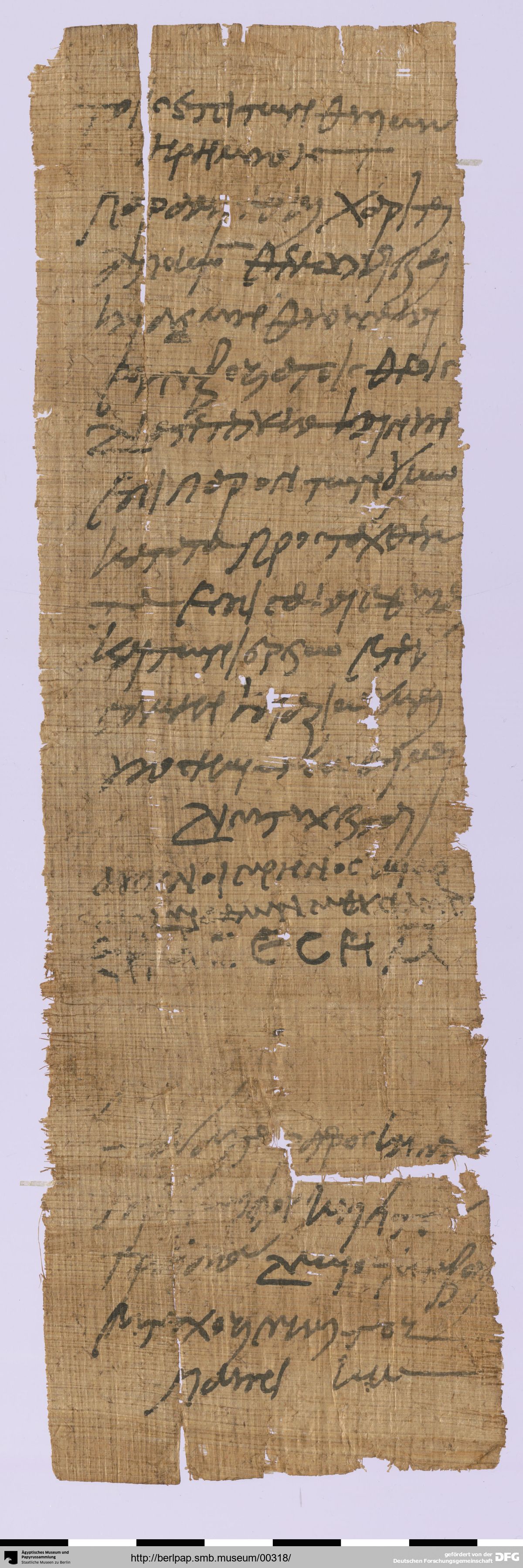SB I 5943 (P. 13430)
This papyrus from Theadelpheia features a fully preserved libellus, a certificate attesting the completion of a sacrifice to the gods, dated to 250 AD. The text contains 22 lines in Greek written on just one side of the narrow papyrus. A duplicate of the same libellus is preserved in the papyrus collection in Hamburg.
Both the date and content of the papyrus place it in the group of libelli that were issued during the so-called ‘Decian persecution’, which resulted from an edict of the emperor Decius. Calling the libellus a „certificate of sacrifice“ or „Opferbescheinigung“ is slightly misleading because it is not a document issued by the state after the completion of a required act. Rather, it is the request of the sacrificing person for confirmation that the publicly executed sacrifice was carried out. It is therefore more of a signed petition than a certificate.
In our text, the first institution to be named is the sacrificial commission to whom the papyrus is addressed („τοῖς ἐπὶ τῶν θυσιῶν ᾑρημένοις, „To those chosen to supervise the sacrifices“). Following this we learn the name of the sacrificer, Aurelia Charis, and her hometown, Theadelpheia. In the following lines Aurelia Charis swears that she has always performed her duty of sacrificing („ἀεὶ μὲν θύουσα“) and has now once again offered a sacrifice. Though these lines are written in first person, it should not be assumed that the woman herself wrote them; more likely a professional scribe issued the libellus.
The wording „διατετέλεκα καὶ νῦν ἐπὶ παρόντων ὑμῶν κατὰ τὰ προσταχθέντα ἔσπισα καὶ ἔθυσα καὶ τῶν ἱερείων ἐγευσάμην“ offers further information about the circumstances of the sacrifice. The sacrifice was offered in the presence of the commission and followed the issuance of an edict (the edict of the emperor Decius). Furthermore, it was not only a libation but also the sacrifice of an animal which the sacrificer had to eat from. Aurelia Charis asks the commissioners to confirm the offering by signing the document. This confirmation was given by two members of the commission – Aurelius Serenus and Aurelius Hermas. In the lower part of the papyrus the first scribe wrote the date – year 1 of the emperor Caesar Gaius Messius Quintus Traianus Decius Pius Felix Augustus, Pauni 22. This is equivalent to June 16, 250 AD.
Because the cities and villages had to nominate the members of the sacrificial commission themselves, the number of members varies from place to place. The members usually held public offices or priestly duties and had to ensure the execution of the sacrifices on a local level.
The text of the original edict is not preserved, so we have to rely on the sparse Christian sources (which must be treated with caution due to their antiroman tendency) and the papyrological evidence to reconstruct the content. Papyri offer us some of the most reliable information on the subject, and imply that a libation as well as an animal sacrifice had to be offered and consumed in the presence of members of a sacrificial committee.
Though the edict is often seen by ancient as well as modern Christian authors as a direct attack on Christians, it more probably belongs to a series of calls for offerings of prayer or thanks that were made during the imperial period in connection to victories and other fortunate events for the state. Whether the edict targeted a certain group of people cannot be determined. That it was seen as an attack on their community by the Christian population is not due to the content of the edict but rather the impact it had on their lives. Those who refused to sacrifice had to face serious consequences, for which Christians devised different solutions. Some of them offered the required sacrifice in spite of their religious beliefs, some sent substitutes to sacrifice for them, some took flight and hoped to escape the order to sacrifice this way, and a very few faced the sacrificial commission and denied the offering.



